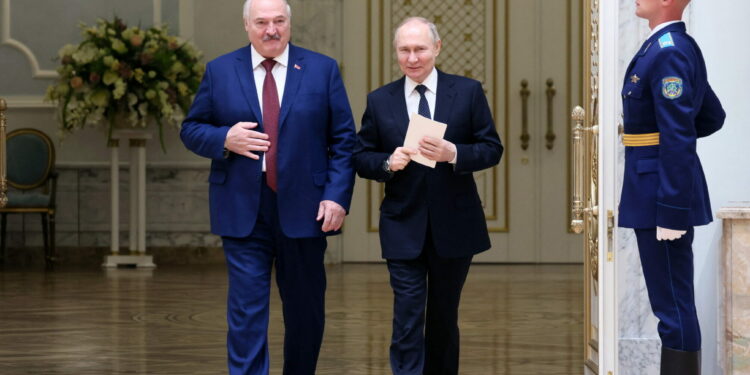Articulating a European future for Belarus does not need to entail talk of NATO membership. Instead, it should involve acknowledging the possibility of removing sanctions, enhancing access to EU travel, education, and capital, and eventually embracing Belarus’s modest population of 9.2 million people under democratic leadership and after deep structural reforms.
From a purely practical standpoint, European integration would not be an insurmountable task. Lukashenka’s repressive regime has actually resulted in relatively good infrastructure conditions for Belarusians, especially in rural areas, compared to most other former Soviet republics. Belarus boasts a highly educated and comparatively young demographic. Prior to the 2020 protests, the country had burgeoning IT and entrepreneurial sectors.
A Belarus free of Russian military entanglements and increasingly aligned with the Euro-Atlantic community instead of the developing Russia-China-Iran-North Korea axis of autocracies would contribute significantly to the security of Ukraine, Poland, and the Baltic states. A Belarusian geopolitical pivot toward the West could also encourage transformation inside Russia itself and compel more Russians to embrace a post-imperial identity.
Failure to articulate the possibility of a European future for Belarus leaves the Euro-Atlantic community at risk of being caught off guard without a plan when Belarus does, indeed, reach its fork in the road. This may come sooner than many are prepared for. By taking steps now to engage with Belarusian society, the EU can strengthen its own foreign policy credentials as a major geopolitical player, mitigate against the risk of a rapid Russian militarization of Belarus, and set the stage for a cooperative relationship with Belarusians in the years to come.
Richard Cashman is a nonresident fellow at the Centre for Defence Strategies.
Further reading
The views expressed in UkraineAlert are solely those of the authors and do not necessarily reflect the views of the Atlantic Council, its staff, or its supporters.

The Eurasia Center’s mission is to enhance transatlantic cooperation in promoting stability, democratic values and prosperity in Eurasia, from Eastern Europe and Turkey in the West to the Caucasus, Russia and Central Asia in the East.
Follow us on social media
and support our work
Image: Russian President Vladimir Putin and his Belarusian counterpart Alyaksandr Lukashenka attend a press briefing following their talks in Minsk, Belarus, May 24, 2024. Sputnik/Mikhail Metzel/Pool via REUTERS
Source link : https://www.atlanticcouncil.org/blogs/ukrainealert/the-west-should-articulate-the-possibility-of-a-european-future-for-belarus-now/
Author :
Publish date : 2024-07-25 20:12:00
Copyright for syndicated content belongs to the linked Source.


